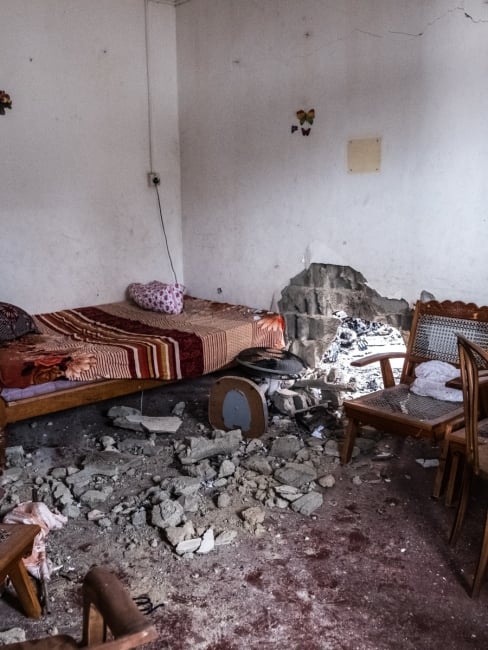You have /5 articles left.
Sign up for a free account or log in.

Debris in a house damaged during a suicide bombing in Sri Lanka
Getty Images
On Easter Sunday, bombs set off by terrorist suicide bombers in churches and hotels in Sri Lanka shocked the world. The number of deaths and injuries, along with the level of general destruction, was appalling. The religious/ethnic dimension of the attack tied it to central political and cultural conflicts of our times -- and of other times as well.
At a college that shall be nameless, the first response from the administration to the general campus community was to alert students that the counseling center would be open for those who felt particularly upset by this news. This was not the same as trying to find out whether individual students might have ties to those directly affected (killed, injured or even in the general neighborhood of this tragedy), but rather to any and all students who might find this news psychologically disturbing.
What is the message here? That when a human tragedy occurs, the first consideration should be a student’s own personal feelings? That first students should think about themselves?
We like to talk about how higher education prepares students for their lives after college. For some people, the focus is relatively narrow in terms of preparing them intellectually and/or (depending on the specific program) professionally. Many of us expand that goal to include preparation for life as citizens of a democracy. Some feel we need to go further by helping them achieve a state of overall well-being, but such a state is commonly said to involve a capacity for “resilience.” In other words, the project should make them stronger.
While the “snowflake” narrative, whereby students are seen as pathologically fragile, has surely become an overdone trope, we do need to take stock of how some campus practices play into an expectation of fragility, as opposed to building strength. (By the way, it might also be useful to reclaim the older use of the snowflake metaphor: that no two are alike.)
And so, perhaps the next time something like this happens, the first responses might include:
- Information on how students might find out more about why this occurred and how particular faculty members might help them do so; and
- Information about organizations that provide important aid to those directly affected by tragedies like this one -- organizations that students may wish to be aware of both for now and for their lives after college.
If a note about counseling services is included, it can come after this.




